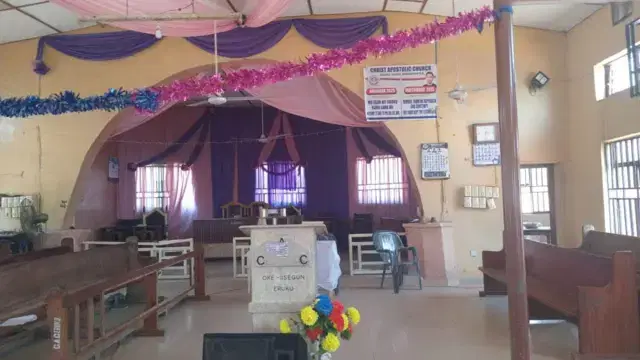A wave of relief swept through Kwara State on Sunday after Governor AbdulRahman AbdulRazaq confirmed that all thirty eight worshippers abducted during the violent attack on Christ Apostolic Church in Eruku had been released. The development arrived five days after the assault that left three people dead and renewed fears about rising insecurity along the Kwara Kogi border.
Key highlights:
The victims regained freedom on Sunday after days in captivity.
Initial ransom demands reached one hundred million naira per person before contact with the kidnappers suddenly stopped.
President Tinubu ordered new tactical deployments to Kwara and canceled his travel plans to monitor the situation.
Security forces, vigilantes and federal agencies carried out intensive operations to track the kidnappers.
The Christian Association of Nigeria condemned the attack and called for justice for the dead.
The attack occurred during a thanksgiving service at the Oke Isegun branch of the church on November 18. Witnesses described a sudden burst of gunfire shortly after six in the evening as the gunmen forced worshippers into nearby bush paths. The pastor’s first son was among those taken. The church secretary, Michael Agbabiaka, confirmed the number of abductees during the first service held after the incident, noting that three people were killed and one remained in hospital.
Conflicting figures had circulated in the early hours after the attack. The church later published the full list of names to dispel speculation and maintain order within the community.
Governor AbdulRazaq, speaking through his Chief Press Secretary, Rafiu Ajakaye, said the release was achieved through coordinated action among federal and state agencies. He expressed gratitude to President Bola Tinubu for what he described as a direct intervention. The President had already canceled his planned trip to the G20 Summit to receive continuous security briefings following the Eruku attack and the separate abduction of schoolgirls in Kebbi State.
Under presidential orders, four specialised security units from the Army, DSS, NIA and the Police were dispatched to the border area. Their arrival strengthened operations already underway, including forest searches and checkpoints along vulnerable routes.
The attack sparked swift public anger. Youths blocked the Kwara Kogi highway the morning after the incident, demanding improved protection. The Christian Association of Nigeria described the raid as heartbreaking and urged the authorities to bring the killers to justice. Schools in several local government areas were shut to prevent further incidents while joint patrols swept the forests for clues.
This kidnapping formed part of a broader pattern of mass abductions across Nigeria. More than two hundred children were taken from a Catholic school in western Nigeria days earlier, followed by the abduction of over three hundred students in the north. Security analysts warn that the frequency of these attacks shows how emboldened criminal networks have become.
Read also:
- EFCC arrests member of syndicate for duping Kwara Monarch N33.39m
- NSCDC tasks personnel on capacity building to enhance community trust
- 5 internet fraudsters bag jail terms in Ilorin
International concern has also risen. The United States signaled that sanctions and expanded counter terrorism assistance were under review due to the growing risk faced by religious communities.
As the freed worshippers rejoined their families, the Eruku community echoed calls for deeper reforms. Local leaders urged the establishment of a permanent forward operating base in the region to prevent repeat attacks. Pastor Lawrence Bamidele, whose live broadcast recorded the panic inside the church, described the release as a blessing in a period marked by loss and fear.
The return of the thirty eight captives provides a moment of relief, yet the scars of the attack remain. Many in the community believe the rescue is only the beginning of a wider effort to restore peace along the troubled border and protect worshippers who increasingly face danger in places meant for sanctuary.






